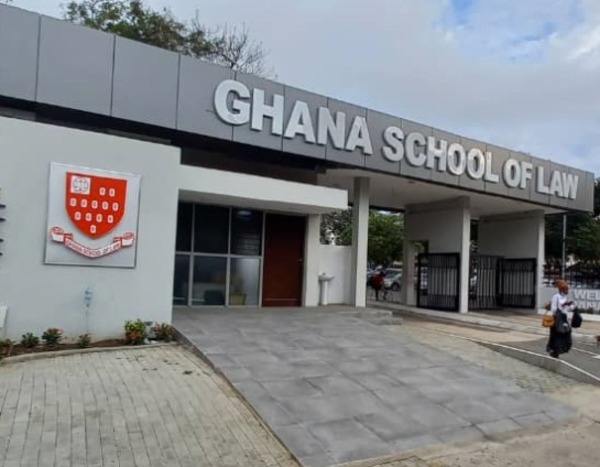The Majority Chief Whip, Rockson-Nelson Dafeamekpor, has announced that the proposed Legal Education Bill will dismantle the Ghana School of Law’s longstanding monopoly on professional legal training.
Speaking on Joy News’ PM Express on Tuesday, May 27, the South Dayi MP described the move as a long-overdue reform to “democratise legal education” and address what he called a “corrupted” system.
“We waged this war from about 2018,” Dafeamekpor, a lawyer himself, said. “Intake to the law school became acrimonious, contentious, and eventually corrupted. Corrupted because evidence emerged that even persons who didn’t write law school entrance exams got admitted.”
He cited findings from the General Legal Council’s disciplinary committee, which revealed that 11 unqualified students were admitted to the Ghana School of Law, although he alleged the real number could be over 33.
“What became the fate of those 11 students? We are yet to know, but we shall uncover,” he stated.
Dafeamekpor said the new bill, once passed, will empower all accredited law faculties to provide both academic and professional legal training.
“Let every faculty accredited to run the academic LLB programmes be licensed to train their own lawyers,” he said.
Under the proposed framework, the General Legal Council will administer two bar exams annually—one in January and the other in July. Successful candidates will be called to the bar in March/April or September/October, respectively.
“That way, we can have as many lawyers as we want,” he noted.
He argued that several law faculties in Ghana already qualify to train lawyers but are restricted by existing regulations.
“What becomes of a law school when you can’t train lawyers?” he asked. “So we want the faculties to be converted into law schools.”
Under the new regime, the Ghana School of Law at Makola will lose its exclusive status and become one of several institutions preparing students for the bar.
“It will no longer have the monopoly. It will admit its own students afresh, train them, and when they’re ready, they go and face the bar like everyone else.”
Dafeamekpor clarified that not all law graduates are destined for courtroom practice.
“There are more people with a law degree who are not in practice. They are in corporate law and others, and we need them,” he said, adding that many public institutions require legally trained individuals to guide their operations, even if they do not appear in court.
Pressed on when the bill will be passed, he responded, “Why not? I’m the Majority Chief Whip, and we are even minded to move this under a certificate of urgency. It is one of our major political promises, and we will deliver it.”
He also revealed plans to publish an article by the end of the week to shed more light on the challenges within the current legal education system.
“We are serious about this. We are going to break the bottlenecks. We are going to expand access. The Legal Education Bill is the way forward,” he affirmed.
Source: Abubakar Ibrahim
ALSO READ:



